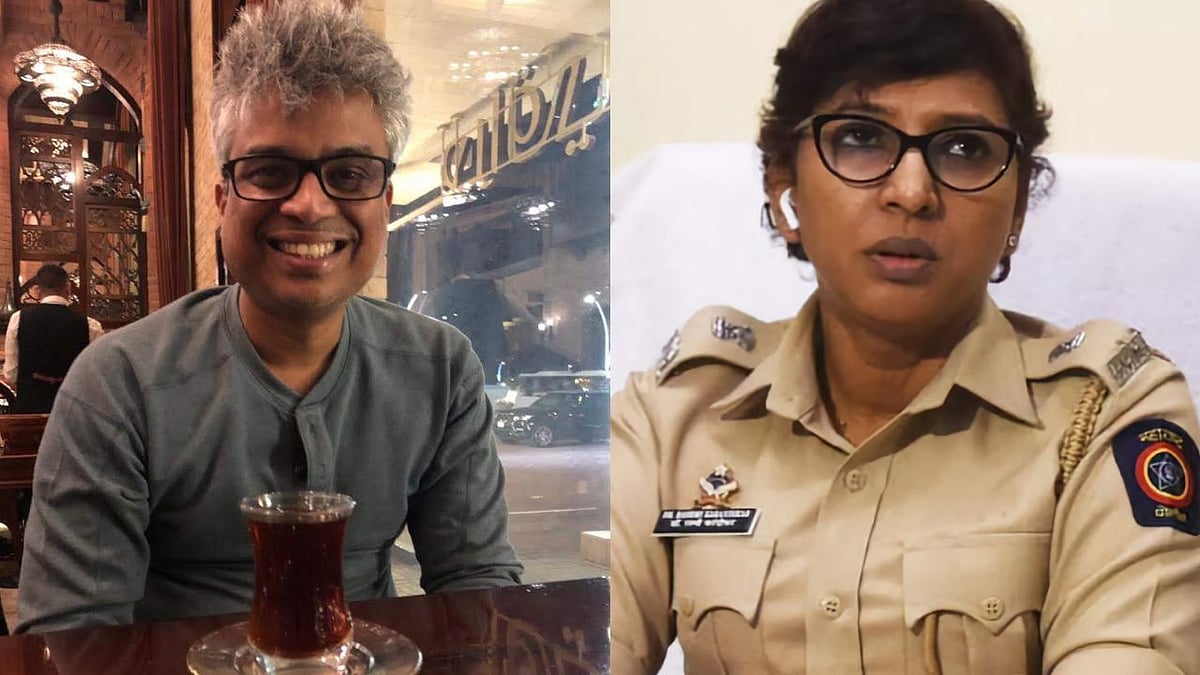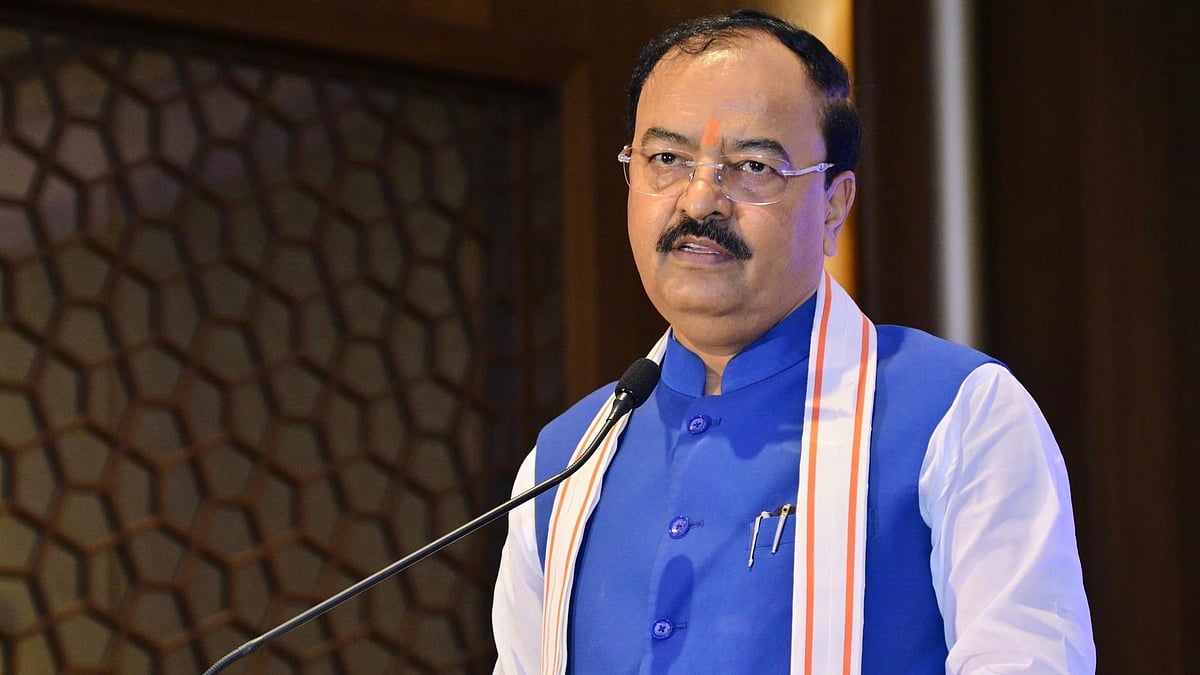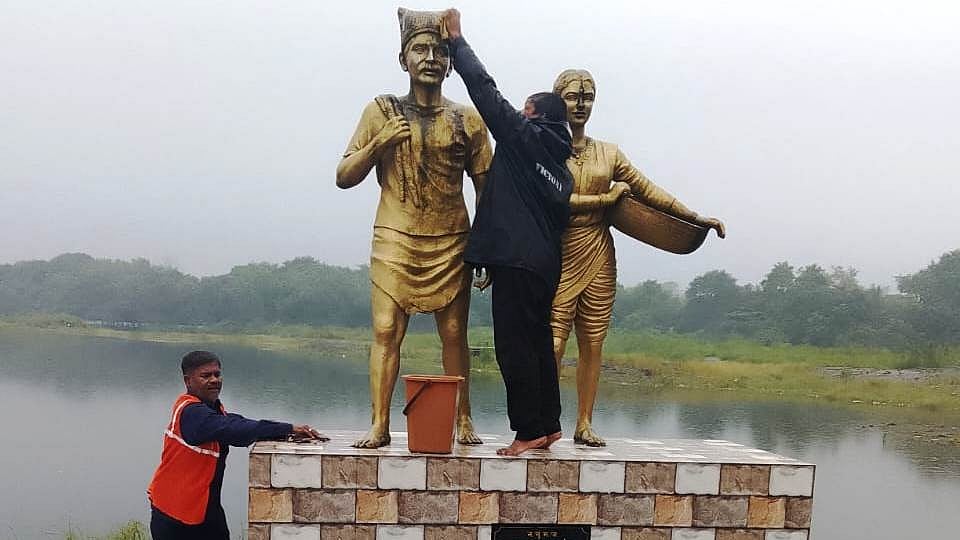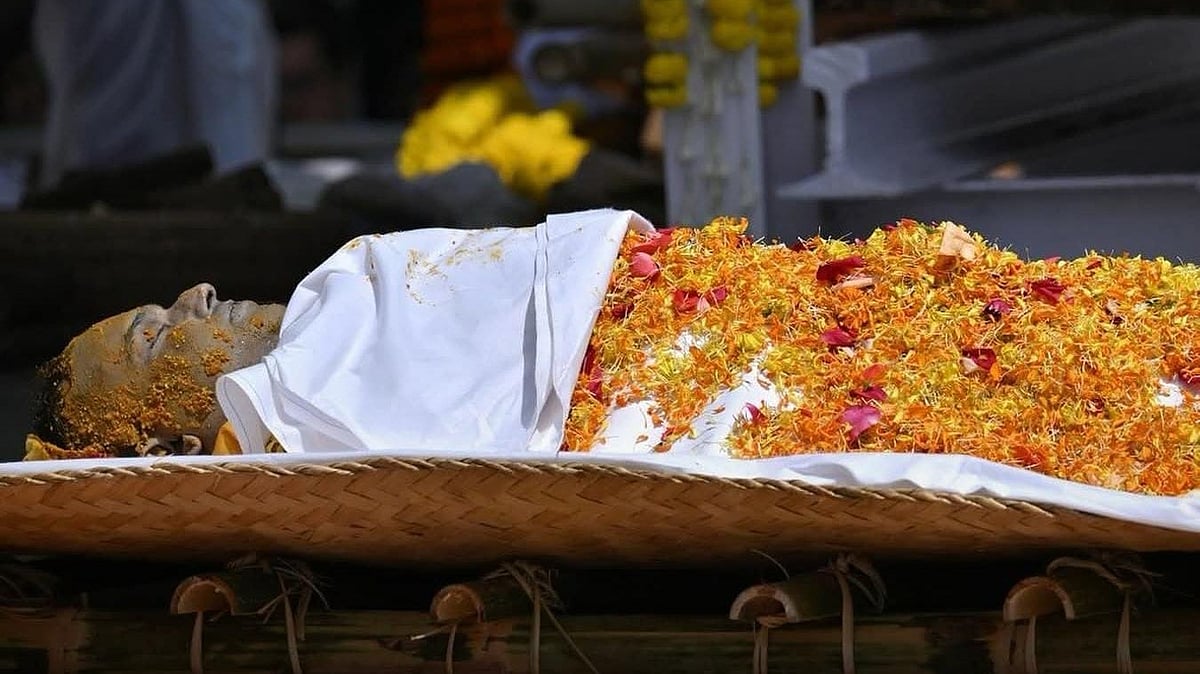Guwahati: Assam came to a standstill on Tuesday as lakhs gathered to bid a final farewell to Zubeen Garg, the state’s beloved music icon, whose sudden demise in Singapore last week left an irreplaceable void in the cultural landscape of the Northeast.
The 53-year-old singer, composer, and actor was cremated with full state honours at Kamarkuchi NC Village, 25 km off Guwahati. The site with an area of 10 bighas of land, specially designated by the Assam government, will later be developed into a memorial. Another memorial is also planned in Jorhat, Garg’s hometown.
As priests recited sholakas and hymns and Assam Police offered 21 a gun salute, Garg’s younger sister, Palmee Borthakur, lit the funeral pyre, accompanied by close friends and family.
In a deeply poignant moment, the crowd broke into a chorus of Mayabini, one of Garg’s most cherished songs and the one he had wished to be sung at his last rites. For many, it felt like his voice lingered in the air, turning the farewell into a final concert.
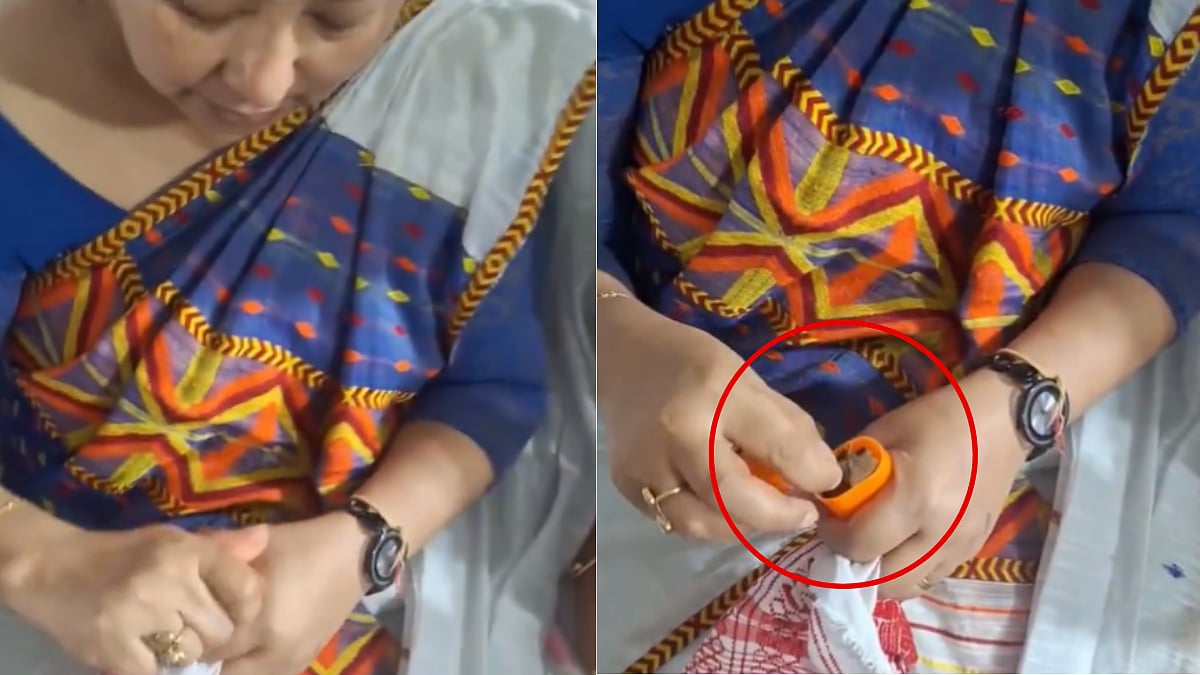
Emotions ran high as his wife, Garima Saikia Garg, broke down while offering her tributes. His father, Mohini Mohan Borthakur, stood silently by her side, as thousands of fans who had camped overnight braved the scorching heat just to be part of their idol’s last journey.
Popular international bollywood singer Papon, a close friend, and numerous artistes and colleagues from the cultural fraternity also paid their respects.
As the flames rose over Kamarkuchi and chants of “Joi Zubeen Da” echoed through the grounds, grief mingled with pride. The silence of mourning was broken time and again by voices singing his songs, as if refusing to let go.
The farewell was not only a people’s tribute but also a state’s recognition. Chief Minister Himanta Biswa Sarma, Union Ministers Sarbananda Sonowal, Kiren Rijiju and Pabitra Margherita, Assembly Speaker Biswajit Daimary, Leader of the Opposition Debabrata Saikia, and several legislators joined the gathering. Prime Minister Narendra Modi’s condolences were conveyed through Union Minister Rijiju. Prominent organisations, including the Asam Sahitya Sabha, All Assam Students Union (AASU), and several indigenous groups, also paid homage.
The journey to the cremation ground began from Sarusajai Stadium, where Garg’s body had been kept since Sunday for public homage. Before the last rites, it was taken to Gauhati Medical College and Hospital (GMCH) for a second post-mortem, ordered by the state government to dispel speculation about the cause of death. While Singapore authorities had certified drowning, reports in Assam pointed to a possible epileptic seizure as the trigger. The final report of the Singapore autopsy is still awaited.

Zubeen Garg had first captured Assam’s imagination in 1992 with his album “Anamika” and went on to record more than 38,000 songs in 40 languages and dialects. Over three decades, he became not just a musician but a movement—an outspoken cultural force whose music and words resonated across generations.
For Assam, the cremation was not just the farewell of an artist but the closing of an era. Yet, in the tears of lakhs and the immortal strains of his melodies, one truth remained: Zubeen Garg may have left this world, but he will forever live in the heart of his people.


